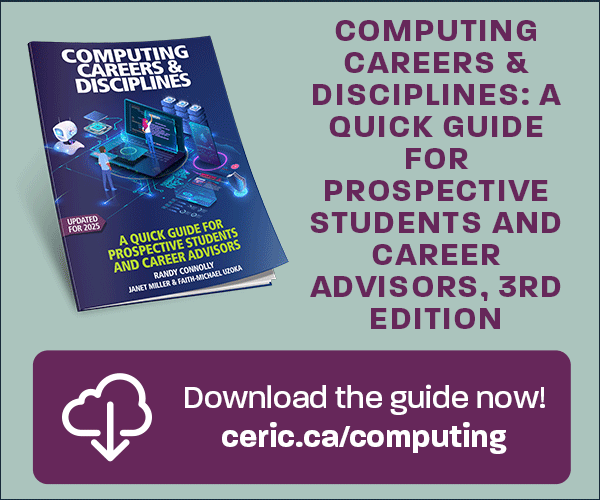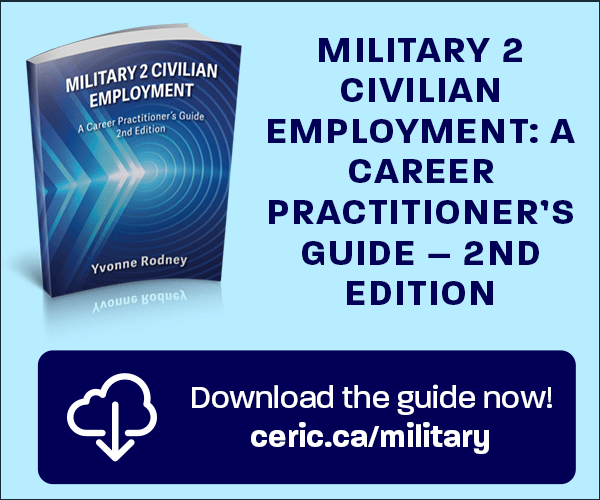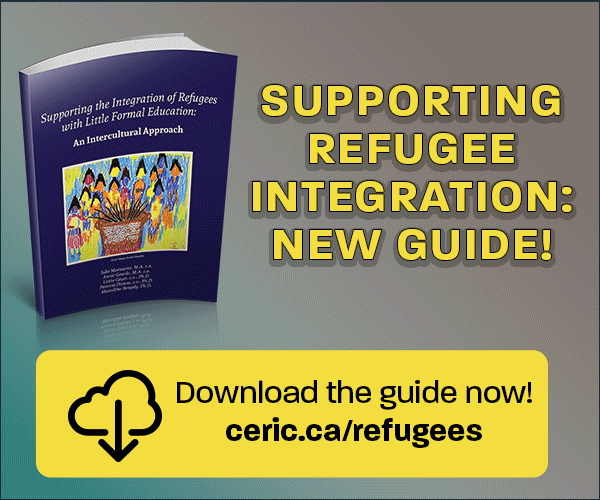From Knowledge to Wisdom: Indigenous Women's Narratives of Doing Well with Career Decision Making
Keywords:
Career Decision Making, Indigenous Women, narrativesAbstract
Indigenous women in Canada are outperforming other Canadians in the labour market (DePratto, 2015). However, we currently have limited understanding about how Indigenous women decide on their choice of career. We sought to understand Indigenous women’s narratives of doing well in making career decisions. Ten women volunteered to tell their stories of how they made career decisions that resulted in positive outcomes. Using a narrative research design, in-depth interviews were recorded and narrative accounts were generated that illuminated the ways in which women in this study overcame life circumstances in their quest to establish a career. Verbatim transcriptions and individual narrative accounts were constructed. The narratives were then analyzed using a thematic analysis (Braun & Clarke, 2006). All participants confirmed the following five main themes: (1) focusing on a career direction, (2) pursuing further education and training, (3) overcoming and learning from adversity, (4) relational experiences that influenced career decisions and (5) connection to Aboriginal community as part of career decision-making. Implications for future research, career theory development and education as well as career counselling practice are discussed.
part of career decision-making. Implications for future research, career theory development and education as well as career counselling practice are discussed
References
Barton, S. (2004). Narrative inquiry: locating Aboriginal epistemology in a relational methodology. Journal of Advanced Nursing 45, 519-526. https://doi.org/10.1046/j.1365-2648.2003.02935.x
Betz, N.E. (2008). Advances in vocational theories. In Brown, S. D., & Lent, R. W. (Eds.). Handbook of Counseling Psychology (4th ed.). Hoboken, NJ: Wiley.
Borgen, W. A., Butterfield, L. D., & Amundson, N. E. (2010). The experience of change and its impact on workers who self-identify as doing well with change that affects their work. Journal of Employment Counseling, 47(1), 2-11.
Bourassa, C., McKay-McNabb, K., & Hampton, M. (2004). Racism, sexism and colonialism: The impact on the health of Aboriginal women in Canada. Canadian Women’s Studies 24(1), 23-29.
Braun, V. & Clarke, V. (2006). Using thematic analysis in psychology. Qualitative Research in Psychology, 3(2), 77-101. doi.org/10.1191/1478088706qp063oa
Bright, J. E. H., & Pryor, R. G. L. (2011). The chaos theory of careers. Journal of Employment Counseling, 48(4), 163-166. doi:10.1002/j.2161-1920.2011.tb01104.x.
DePratto, B. (2015). Aboriginal women outperforming in labour markets. TD Economics, Special Report, July 6. Retrieved August 21, 2018, from https://www.td.com/document/PDF/economics/special/AboriginalWomen.pdf
Employment and Social Development Canada [ESDC] (2015). Aboriginal Skills and Employment Training Strategy. Aboriginal Labour Market Bulletin, 4(1), 1-40.
Fiscal Realities Economists [FRE]. (2016). Reconciliation: Growing Canada’s economy by $27.7 billion: Background and methods paper. Gatineau, QC: National Aboriginal Economic Development Board. Retrieved June 2, 2018 from http://naedbcndea.com/reports/naedb_report_reconciliation_27_7_billion.pdf
Gelatt, H. (1989). Positive uncertainty: A new decision-making framework for counseling.Journal of Counseling Psychology, 36, 252–256.
Gerber, L.M. (2014). Education, employment, and income polarization among Aboriginal men and women in Canada. Canadian Ethnic Studies 46(1), 121-144. Canadian Ethnic Studies Association. Retrieved August 21, 2018, from Project MUSE database.
Halseth, R. (2013). Aboriginal women in Canada. Gender, socio-economic determinants of health, and initiatives to close the wellness gap. Prince George, BC: National Collaborating Centre for Aboriginal Health. Retrieved August 21, 2018 from désLibris Canadian Books & Public Policy.
Hiles, D., Čermák, I., & Chrz, V. (2017). Narrative Inquiry. In C. Willig and W. StaintonRogers (Eds.). The Sage Handbook of Qualitative Research in Psychology. Thousand Oaks, CA: Sage.
Hurley, M.C. & Simeone, T. (2010). Legislative Summary of Bill C-3: Gender Equity in Indian Registration Act. Aboriginal Policy Studies 3(3), 153-172. doi: http://dx.doi.org/10.5663/aps.v3i3.22232.
Knight, R. (1996). Indians at Work: An Informal History. Vancouver: New Star Books.
Krumboltz J. P. (2009). The happenstance of learning theory. Journal of Career Assessment, 17(2), 135-154.
Lawrence, B. (2003). Gender, race and the regulation of native identity in Canada and the United States: An Overview. Hypatia 18(2), 3-31. doi: 10.1353/hyp.2003.0031
Lent, R. W., & Brown, S. D. (2013). Social cognitive model of career self-management: Toward a unifying view of adaptive career behavior across the life span. Journal of Counseling Psychology, 60(4). 557-568.
Lent, R. W., Brown, S. D., & Hackett, G. (1994). Toward a unifying social cognitive theory of career and academic interest, choice, and performance. Journal of Vocational Behavior, 45, 79–122.
Manual, A. & Derrickson, R. M. (2015). Unsettling Canada: A national wake-up call. Toronto: Between the Lines.
McCormick, R. & Amundson, N. (1997). A career-life planning model for First Nations people. Journal of Employment Counseling 34(4), 171-179.
Morgan, N. J. (2015). Life on the line: Indigenous women cannery workers’ experiences of precarious work. (Unpublished doctoral dissertation). University of British Columbia, Vancouver, BC.
Neumann, H., McCormick, R. M., Amundson, N. E., & McLean, H. B. (2000). Career counselling First Nations youth: Applying the First Nations Career-Life Planning Model. Canadian Journal of Counselling, 34(3), 150-166.
Reading, J. (2009). The crisis of chronic disease among Aboriginal peoples: A challenge for public health, population health and social policy. Centre for Aboriginal Health Research, University of Victoria.
Richmond, C. (2015). The relatedness of people, land, and health. In M. Greenwood, S. deLeeuw, N.M. Lindsay, and C. Reading (Eds.). Determinants of Indigenous peoples’ health in Canada: Beyond the social. Toronto: Canadian Scholars’ Press.
Richmond, C., & Ross, N. (2009). Social support, material circumstance and health behavior: Influences on health in First Nation and Inuit Communities of Canada. Social Science & Medicine, 67(9), 1423-1433. doi: https://doi.org/10.1016/j.socscimed.2008.06.028
Riessman, C. K. (2008). Narrative Research for the Human Sciences. Thousand Oaks, CA: Sage.
Rogers, P. A., & Creed, P. A. (2011). A longitudinal examination of adolescent career planning and exploration using a social cognitive career theory framework. Journal of Adolescence, 34(1), 163-172.
Sarbin, T. (1986). Narrative Psychology: The Storied Nature of Human Conduct. NY: Praeger.
Super, D. E. (1953). A theory of vocational development. American Psychologist, 30, 88–92.
Super, D. E., Savickas, M. L., & Super, C. M. (1996). The life-span, life-space approach to careers. In D. Brown & L. Brooks (Eds.), Career choice and development: Applying contemporary theories to practice (3rd ed., pp. 121–178). San Francisco: Jossey-Bass
Todd, R. (2012). Young urban Aboriginal women entrepreneurs: social capital, complex transitions and community support. British Journal of Canadian Studies 25(1), 1-21. Doi:10.3828/bjcs.2012.01
Truth and Reconciliation Commission of Canada (2015). Honouring the Truth, Reconciling for the Future: Summary of the Final Report of the Truth and Reconciliation Commission of Canada. Retrieved June 20 http://www.trc.ca/websites/trcinstitution/File/2015/Honouring_the_Truth_Reconciling_for_the_Future_July_23_2015.pdf
Tuhiwai Smith, L. (1999). Decolonizing Methodologies: Research and Indigenous Peoples. London & New York: Zed Books Ltd.
Tuhiwai Smith, L. (2005). On tricky ground: Researching the native in the age of uncertainty. In Denzin, N. & Lincoln, Y. (Eds.). The Sage Handbook of Qualitative Research (3rd ed., pp. 85-107). Thousand Oaks, CA: Sage Publications.
Young, R. A., Marshall, S. K., & Valach, L. (2007). Making career theories more culturally sensitive: Implications for counseling. The Career Development Quarterly, 56(1), 4-18.

Downloads
Published
How to Cite
Issue
Section
License
Copyright (c) 2019 CANADIAN JOURNAL OF CAREER DEVELOPMENT

This work is licensed under a Creative Commons Attribution-NonCommercial-NoDerivatives 4.0 International License.
















